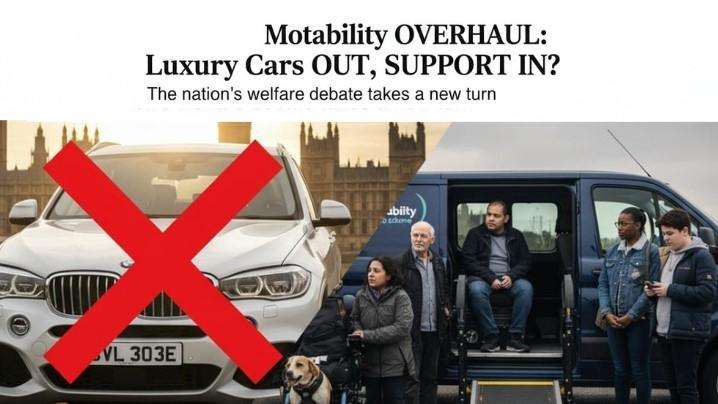The political landscape surrounding welfare spending has been dramatically reshaped following Transport Secretary Heidi Alexander's outspoken support for a major overhaul of the Motability scheme. In a move that signals the government's firm commitment to change, Ms Alexander publicly backed Chancellor Rachel Reeves' initiative to prohibit individuals on sickness benefits from accessing taxpayer-subsidised luxury vehicles. This marks the first time a Cabinet Minister has openly endorsed the controversial proposals, lending significant weight to the impending reforms.
Speaking on Monday, Ms Alexander indicated she would be "comfortable" with removing high-end brands like BMW and Mercedes from the list of available Motability vehicles. Her stance centres on a desire to ensure the scheme offers "value for money" to the taxpayer while remaining available for those with "genuine mobility needs." The public endorsement comes amidst growing scrutiny over the program, which has seen a significant increase in claimants, including those with conditions like anxiety and ADHD, driving premium cars.
The Treasury's Mandate: Tackling 'Unfairness' and Rising Costs
The push for change originates from the Treasury, led by Chancellor Rachel Reeves, who is reportedly concerned that the Motability scheme has "lost its focus on its original purpose." A Treasury source confirmed on Sunday that the Chancellor is "100 per cent committed to ensuring the scheme is there for those who need it most" but expressed alarm that only one in ten of the scheme's cars are currently adapted for specific disability needs. This statistic fuels the argument that the scheme, in its current form, is "offering a premium motoring experience subsidised by the taxpayer," rather than solely essential mobility support. The latest figures are striking: annual taxpayer transfers to Motability have soared to £3.1 billion, a 10 per cent year-on-year rise, correlating with a post-pandemic surge in sickness benefit claims. There are approximately 50,000 high-end models currently leased under the scheme.
Impact and Perspectives: A Tug-of-War Over Welfare
The proposed reforms aim to make the scheme less generous by not only ending access to premium models but also by potentially scaling back other comprehensive perks. Currently, users of the higher rate of Personal Independence Payments (PIP), valued at £187.45 per week, effectively exchange their benefit for an all-inclusive Motability package. This package is highly valued because it includes insurance for three drivers, domestic and foreign breakdown assistance, road tax, and servicing.
From the government's perspective, these changes are a necessary measure to restore public faith, control escalating welfare costs, and ensure fairness in the distribution of public funds. For the disabled community and disability advocates, the potential impact is viewed with anxiety. While acknowledging that luxury cars may be a peripheral issue, the core fear is that scaling back the scheme's generosity will penalise disabled individuals who rely on the comprehensive, worry-free package for their independence. Critics argue that the all-inclusive nature of the current deal simplifies the challenges of vehicle ownership for those with complex needs, and that cheaper, smaller alternatives may not always meet their requirements for space, comfort, and reliability. This looming policy battle will be framed as a choice between fiscal responsibility and essential disability support.
What Happens Next: Legislative Battles and Political Fallout
With the Transport Secretary's public backing, the pressure is now on the government to flesh out the specific details of the scheme's restructuring. Ms Reeves is expected to announce more concrete measures in a future fiscal statement, potentially as part of a wider effort to reform the welfare system. Expect an intense period of lobbying and parliamentary debate as disability charities and opposition politicians challenge the severity of the cuts. The government will need to navigate the fine line between achieving better value for the taxpayer and ensuring that disabled citizens maintain the independence they currently receive. The political narrative will shift to the definition of "essential mobility" versus "luxury," a debate set to dominate headlines in the coming months as the government seeks to balance its books and deliver on its promise of welfare reform.








.svg)


.jpg)